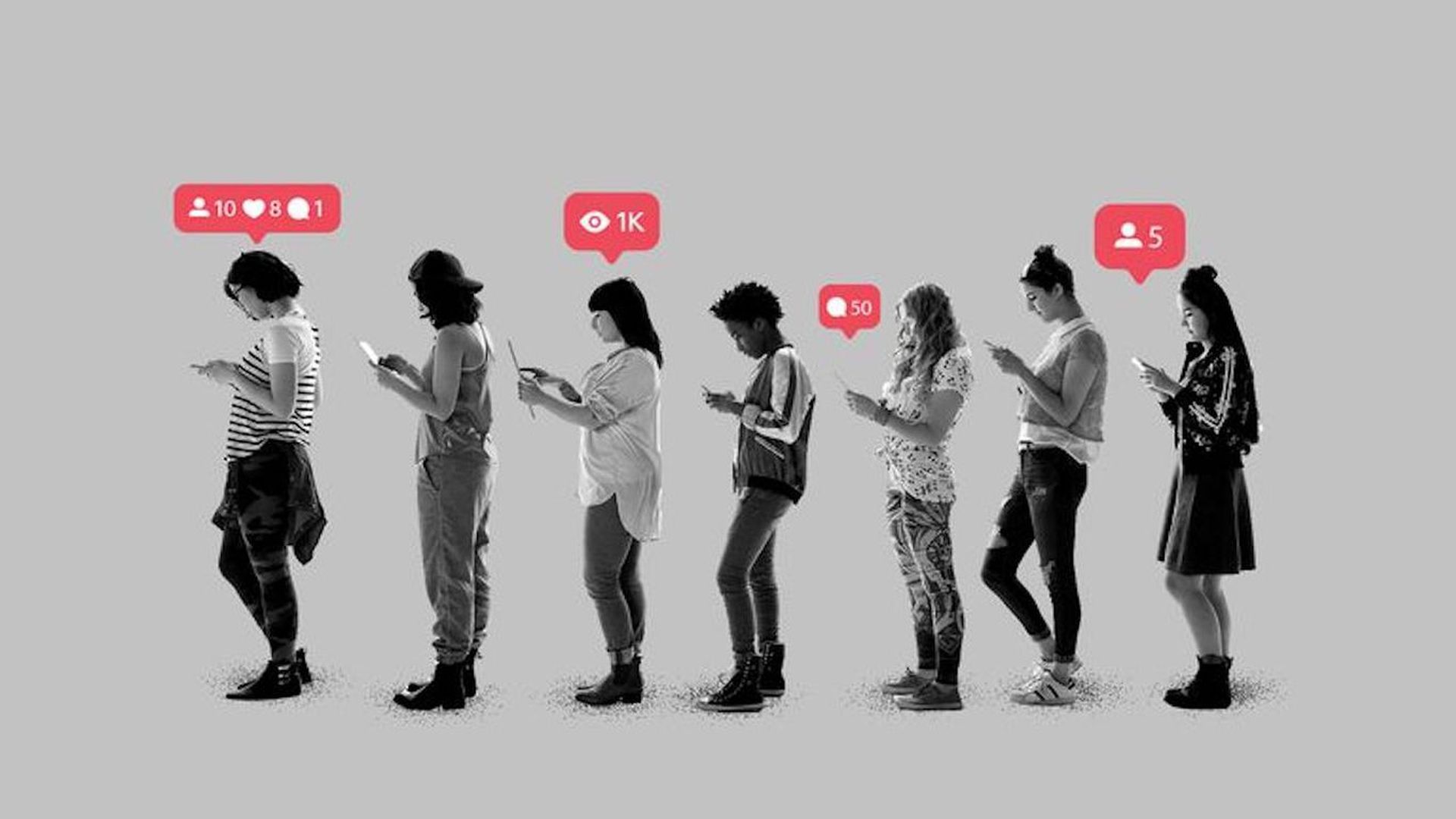Tech companies target your sanity
Add Axios as your preferred source to
see more of our stories on Google.

Illustration: Aïda Amer/Axios
Several of the biggest social media platforms are beginning to test changes that cut down on scorekeeping, discourage harassment and aim to improve users' well-being.
Why it matters: The unwinding of features such as public "like" counts could have a major impact on the multi-billion dollar businesses of social media companies, as well as the millions of brands and creators that rely on those features to fuel their own businesses.
Driving the news: Instagram will begin testing the removal of public "like" counts on its platform in the U.S. this week, Instagram head Adam Mosseri said last week at a Wired event.
- The U.S. test follows similar public tests of removing "like" counts in other countries, like Canada, Australia, Japan, Italy and Brazil.
- Instagram's parent Facebook began rolling out a similar test to hide public "like" counts on its platform in Australia in September.
Social media companies for years tried to juice engagement with features like increased notification symbols, publicly-facing "like" counts or brighter colors to attract users to more images.
- Some researchers now believe that those tactics have led to an over-use in social media, and may have had a negative overall impact on users' health and wellbeing.
Twitter is also deploying a series of tests to motivate users to engage more positively and cut down on harassment and bullying. According to Buzzfeed News, in the next two weeks "Twitter will debut a series of experiments meant to calm us down — subtly motivating us to use the quote-tweet, reply, and retweet in nondestructive ways."
- The goal is to steer them away from dunking on people or spreading misinformation by retweeting too quickly.
- Both Twitter and Instagram announced new content moderation policies to help prevent online harassment and bullying earlier this year.
YouTube recently updated its terms to give it more power to boot accounts that could be causing harm off the platform. Earlier this year it made changes to the way it displays subscriber counts in real time, blocking third-party sites that had turned the metric into a spectacle of glory and shame for celebrity content creators.
Yes, but: These efforts aren't totally altruistic. The high-engagement environment that platforms have built is also burning out some users.
- Of the 60% of teens that say they take voluntary breaks from social media, nearly a quarter say that they do so because they are tired of drama and conflict, according to a study from Associated Press-NORC Center for Public Affairs Research.
Be smart: Most social media firms have warned investors for months that their experiments tied to investments in health and wellbeing initiatives may impact profits.
- Last quarter, for example, Twitter said investments in health and safety features would increase operating costs by 20% over the course of the entire fiscal year.
To date, there haven't been many examples of platforms making big changes that cut down user engagement.
- The one exception: When Facebook cut back on posts from news companies and brands in user's news feeds in 2018, Facebook CEO Mark Zuckerberg said overall use of Facebook dropped by “roughly 50 million hours every day.”
The big picture: Online bullying has become a major talking point for leaders ranging from Melania Trump to Prince Harry. An increase in public pressure on tech companies could be part of what has finally driven them to make changes.
- Snapchat's Evan Spiegel has long criticized the "likes" system on social media for spurring fake news, divisive content and unhealthy engagement. Snapchat has never included any sort of publicly-listed "like" counts on its app.
What's next: One big question will be how these changes affect the millions of online creators and businesses that rely on "like" counts and similar stats to optimize their businesses.
- "When we look at the world of public content, we’re going to put people in that world before organizations and corporations," Mosseri said at the Wired event.
- "Likes are only a small portion of how we evaluate and track engagement across our social handles," says Howard Mittman, CEO of Bleacher Report, which runs several of the most popular accounts on Instagram.
- "However, I can see how some of the influencer and micro-influencer community could be adversely affected by this — particularly those who over optimized and/or bought followers solely based upon using likes as a meaningful metric."
The bottom line: Responding to public clamor and media criticism, social media companies are trying to move away from engagement at all costs and towards a healthier experience. That means they're also stepping into a more unpredictable future for their own bottom lines and those of businesses that depend on them.
Go deeper:
